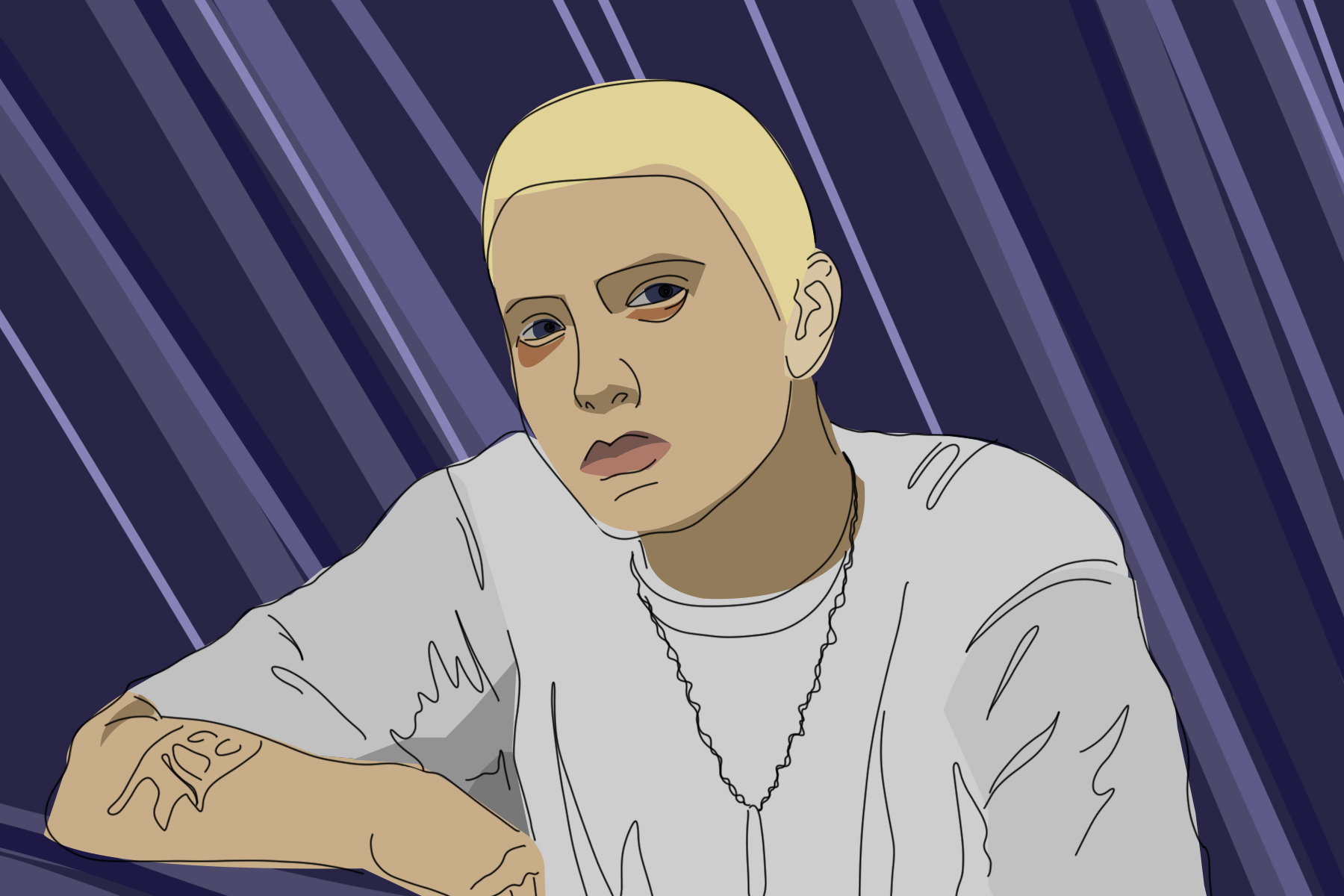Eminem erupted onto the world of hip-hop over 20 years ago. He quickly rose to superstardom and now has an illustrious career as a top-selling artist. However, the perception of the great Eminem, born Marshall Mathers, has certainly taken a different turn over the past few years. After releasing 11 studio albums, Mathers has experienced the highest of highs and lowest of lows as a musician.
Formerly a universally loved artist that was included in lists of the greatest artists ever, Slim Shady’s latest discography has begun to ignite a trending hatred for the artist among fans. While many artists deal with fans turning against them as they get older, Mathers’ career has become a case study. What changed? Are the critics right? Is it possible for Eminem to bounce back from the backlash?
Ironically, the slippery slope that Eminem has traveled down began earlier than people realize. Mathers’ 2005 release, “Encore,” was his first album that received widespread, viable criticism. This was followed by a four-year stint in which Mathers faced tragic adversity. With an uncontrollable drug addiction and the loss of one of his best friends, Eminem didn’t return to the music industry until the 2009 release of “Relapse.” This album was also met with extreme criticism, and the snowball started to gain momentum.
Mathers attempted to revolutionize his image and style with the following year’s release of “Recovery,” but it was to no avail. Eminem held on to his core fan base, but the general population of hip-hop lovers began to denounce the veteran artist.
After these polarizing releases, Slim Shady returned with bleach blond hair in an attempt to capture lightning in a bottle once again, with the album “Marshall Mathers LP 2,” the sequel to his critically acclaimed “The Marshall Mathers LP.” After this album, it seemed like Eminem could do nothing right. Again, he was met with widespread criticism and declining album sales.
Following another few years without an Eminem solo project, he returned with the album “Revival,” which marked the moment that fans’ perception of the artist took a drastic turn for the worse. This album was accompanied by “Kamikaze,” the Machine Gun Kelly rivalry and the release of “Music to Be Murdered By,” but none of them were able to encapsulate the love, controversy or mystique of the old Slim Shady.
There are a number of things that have led to this moment where Mathers seems to be more hated as an artist than loved.
Firstly, popular music has evolved into something at odds with Eminem’s artistic style. In an age of versatility where sonically pleasing sounds, bursts of creative flows and rhythmic melodies take priority, Mathers’ gritty approach to making music has not aged well. Mathers has stated on many occasions that lyricism is the most important component of hip-hop to him, evidenced by the notebooks full of handwritten rhymes that he’s accumulated over the decades. He has always showcased his lyrical ability above all else, while today, lyricism has become one of the least appreciated dimensions of rap.
While rappers like Kendrick Lamar and J. Cole prioritize their lyrics, their approach exemplifies the difference between lyrics and lyricism. Lyricism is the ability to join together complex wordplay with complicated, multisyllabic rhyme schemes. Lyrics are the content, the feeling and the energy that charges the overall sound in modern music. While Eminem has mastered lyricism, his lack of meaningful content has exemplified his poorer grasp on lyrics and lyrical content. This, in combination with contemporary music moving away from Mathers’ skill set, is a huge contributing factor to the present perception of the artist.
Secondly, Eminem’s music itself has changed, perhaps even more so than hip-hop music has as a whole. His earlier projects, such as the “Slim Shady LP” and the “Marshall Mathers LP,” were full of genuine content that came from personal experiences that informed a careful balance of lyricism, songwriting, funky flows and fiery words full of drama. “The Eminem Show” consisted of a more serious tone that epitomized the rapper’s prime. Mathers mastered his skill set, and the creativity mixed with cultural commentary provided for a worldwide success that solidified Eminem as the king of hip-hop at the time.
These projects drastically differ from Eminem’s most recent creations. People argue about how his overall sound has changed, but an artist is supposed to evolve; instead, the most perceptive criticisms focus on his lack of balance. Eminem rarely gives up lyricism for anything now, and that is what has mostly changed about his music. When listening to his newer projects, it sounds as if some of Eminem’s core elements have taken a backseat to his new interest in impressing the audience with his lyricism.
Mathers is far away from his days of being young and hungry for success, and there is a lack of genuineness and raw emotion in his recent albums. The energy has changed, and while Eminem is solidified in the conversation of greatest lyricists ever, the latest incarnation of the rapper does not compare to the old Eminem, who truly created music that made the audience feel.
Eminem is a legend. Nobody can tell the story of hip-hop without mentioning Slim Shady. However, as the story unfolds, he continues to hurt his own career by purposely not catching up with the times and then using his new music to respond to those who dislike his own anti-popular music.
If he continues to consistently release such music, it will be like walking on a tightrope for Mathers, but he could turn the tide that is against him by following the path of other veteran rappers such as Snoop Dogg, 50 Cent and Jay-Z. They have all evolved beyond making music, injecting the lessons they have learned from hip-hop and pouring it into other creative outlets. Mathers is an absolute genius, and it would be amazing to see him pursue endeavors beyond the studio.
The criticism against the artist is perhaps righteous, perhaps a trend or perhaps people being blinded by the rapid evolution of new sounds and artists. Eminem is in a tough position as an artist, but he will prevail as a person.

















